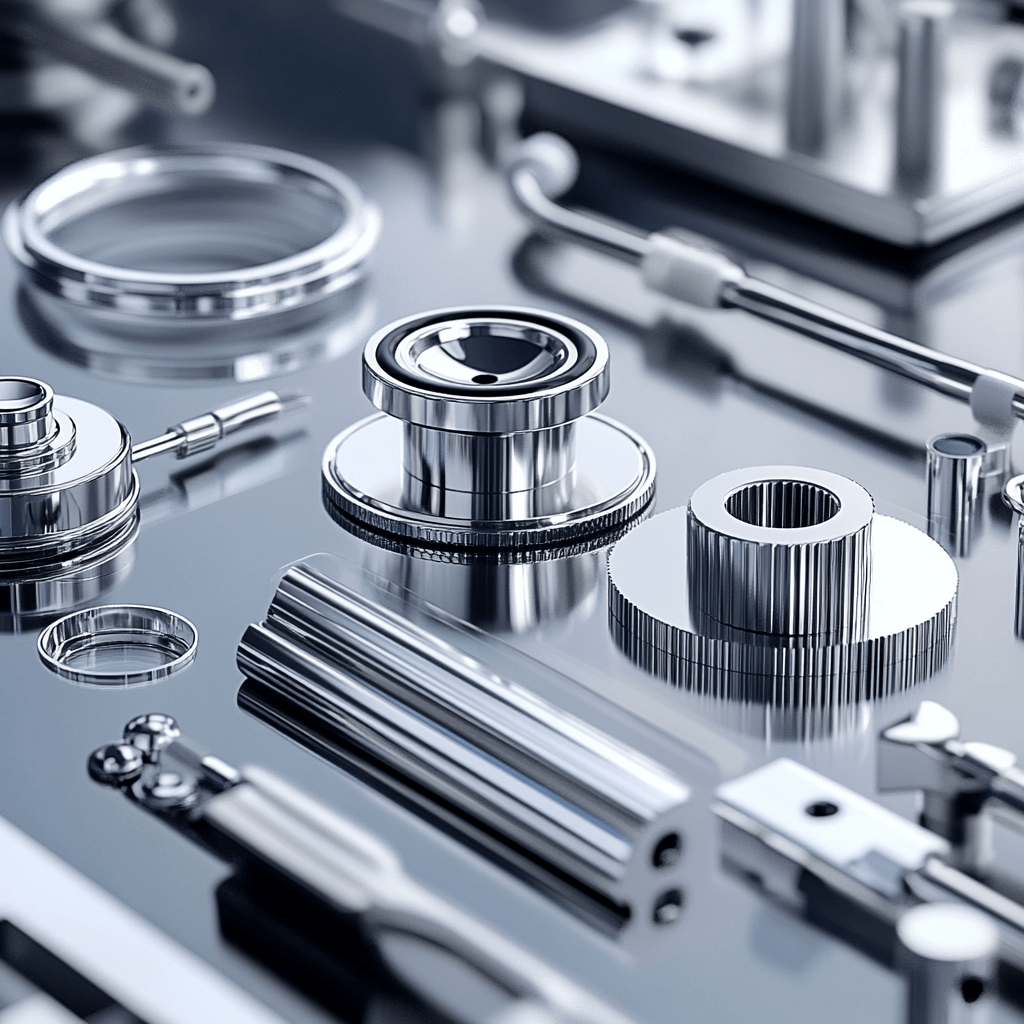In the rapidly evolving medical device industry, material selection is crucial for innovation and efficiency. Aluminum has become a standout choice, offering numerous advantages over traditional materials like stainless steel and titanium. At Profile Precision Extrusions, we specialize in crafting custom miniature aluminum extrusions that redefine the possibilities in medical device design and manufacturing.
Why Choose Aluminum for Medical Devices?
Ease of Machining and Fabrication
Aluminum’s exceptional machinability simplifies the manufacturing process, reducing both time and cost. Unlike titanium, which demands specialized machining techniques, aluminum can be easily shaped and formed to meet exacting specifications. This ease of fabrication supports the creation of complex geometries that are often cost-prohibitive with stainless steel or titanium.
Cost-Effectiveness
Cost is a critical factor in medical device production. Aluminum is more affordable than both stainless steel and titanium, making it an economically advantageous choice for large-scale manufacturing. The low tooling costs associated with aluminum extrusions further enhance its cost-effectiveness, facilitating rapid prototyping and production.
Recyclability and Environmental Impact
Aluminum is highly recyclable, contributing to a reduced carbon footprint compared to other metals. This recyclability is increasingly important in the medical industry, where sustainable practices are becoming essential. By opting for aluminum, manufacturers can minimize waste and promote eco-friendly production processes.
Design Flexibility
Aluminum offers unparalleled design flexibility, allowing for the creation of a wide range of shapes and sizes. This flexibility is vital for medical devices that require precise and intricate designs, such as stethoscopes, trocars, and surgical tools. Aluminum extrusions provide almost limitless geometric possibilities, enabling innovative solutions that meet specific medical needs.
Biocompatibility
Aluminum alloys like 6061, 6063, and 3003 are biocompatible, making them suitable for medical devices that interact with the human body. Coatings such as anodize or chem-film enhance this biocompatibility, ensuring that aluminum components comply with stringent medical standards.
| PROPERTY | ALUMINUM | STAINLESS STEEL | TITANIUM |
| Machinability | High, easy to machine | Moderate, requires more effort | Low, needs specialized tools |
| Cost | Low, affordable raw material | Moderate, widely used | High, expensive raw material |
| Weight | Lightweight, high strength-to-weight | Heavier, lower strength-to-weight | Lightweight, high strength-to-weight |
| Corrosion Resistance | Forms protective oxide layer, superior if anodized | Good, but can corrode in some environments | Superior, forms protective oxide layer |
| Biocompatibility | Good, best suited for medical devices | Good, best suited for medical devices | High, preferred for implants |
Aluminum extrusions present a powerful array of benefits for medical device manufacturers, offering cost efficiency, design versatility, and superior machinability, all while supporting sustainable practices. At Profile Precision Extrusions, we leverage these advantages to produce high-quality, custom aluminum components that meet the exacting standards of the medical industry.
Lead Time Comparison
| MATERIAL | TOOLING | PRODUCTION |
| Aluminum | 2-3 Weeks | 3-4 Weeks |
| Powder Metal | 6-8 Weeks | 2-4 Weeks |
| Stainless Steel | 6-12 Weeks | 6-12 Weeks |
| Metal Injection Molding (MIM) | 10-12 Weeks | 8-10 Weeks |
| Castings | 10-12 Weeks | 4-6 Weeks |
Whether you’re embarking on a new medical device development or looking to refine an existing design, aluminum extrusions provide transformative possibilities.
Contact us today to explore how our innovative aluminum solutions can drive your project forward with precision and efficiency.


